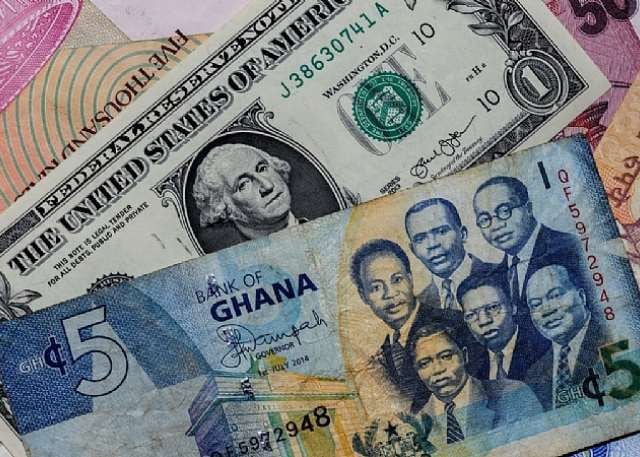The Ghanaian Cedi continued its downward trajectory against major international currencies on Wednesday, September 24, 2025, reflecting persistent pressures on the nation’s currency. Across various exchange platforms, the Cedi demonstrated significant depreciation against the US dollar, the British pound, and the euro. This concerning trend impacts import costs, debt servicing, and the overall economic stability of Ghana. The varying exchange rates across different platforms highlight the complexities of the currency market and the potential for discrepancies in pricing. Furthermore, the reliance on platforms like Cedirates.com underscores the importance of transparent and readily available exchange rate information for consumers and businesses alike.
Analyzing the US dollar exchange rate, the Cedi experienced notable depreciation on forex bureaus, trading at an average buying rate of GHS12.24 and a selling rate of GHS12.84. This represents a significant difference compared to the Bank of Ghana’s interbank market rate, where the Cedi traded at GHS12.29 for buying and GHS12.31 for selling. The wider spread observed at forex bureaus suggests higher profit margins for these institutions and potentially reflects a greater sensitivity to market fluctuations. The disparity between the interbank and forex bureau rates also highlights potential arbitrage opportunities for those with access to both markets. The depreciation of the Cedi against the dollar has significant implications for import costs, particularly for goods denominated in dollars, leading to potential price increases for Ghanaian consumers.
The British pound also witnessed the Cedi’s weakening, with forex bureaus offering average buying rates of GHS16.41 and selling rates of GHS17.29. This contrasts with the Bank of Ghana’s interbank rate of GHS16.64, again indicating a wider spread at forex bureaus. The depreciation against the pound mirrors the trend observed with the dollar, reflecting broader pressures on the Cedi. For businesses involved in trade with the UK, this depreciation translates to higher import costs, potentially impacting profitability and pricing strategies. Similarly, individuals remitting funds to Ghana from the UK will find their pounds yielding fewer Cedis, affecting the purchasing power of their remittances.
The euro followed a similar pattern, with forex bureaus offering average buying rates of GHS14.33 and selling rates of GHS15.09. The Bank of Ghana’s interbank rate for the euro stood at GHS14.51. The persistent depreciation of the Cedi across these major currencies suggests underlying economic factors at play, potentially including inflation, trade imbalances, and investor sentiment. The weakening of the Cedi against the euro has implications for trade with the Eurozone and impacts the cost of European goods and services within Ghana.
In the money transfer sector, specialized remittance services like LemFi and Taptap Send offered competitive exchange rates for remittances from the US or UK to Ghana. For dollar remittances, LemFi offered a rate of GHS12.35, while Taptap Send provided a slightly more favorable rate of GHS12.25. For pound remittances, LemFi offered GHS16.71, and Taptap Send offered GHS16.77. For euro remittances, Taptap Send quoted GHS14.50, and Lemfi offered GHS14.53. These specialized remittance platforms often provide more competitive rates compared to traditional banking channels, benefiting individuals sending money to Ghana. The slight variations in rates offered by these platforms demonstrate the competitive nature of the remittance market and underscore the importance of comparing rates before initiating transfers.
Finally, for digital subscription services like Netflix, Spotify, and Apple Music paid via Visa and Mastercard, the exchange rates were GHS13.11 and GHS13.21 respectively. These rates, applied to transactions processed through international card networks, reflect the underlying exchange rates with the US dollar, the currency in which these subscriptions are typically billed. The application of these exchange rates highlights the interconnectedness of the global financial system and the impact of currency fluctuations on even small, recurring transactions. The slight difference between the Visa and Mastercard rates may reflect variations in their respective processing fees or currency conversion mechanisms. Overall, the depreciating Cedi raises concerns about the affordability of these digital services for Ghanaian consumers over time.


